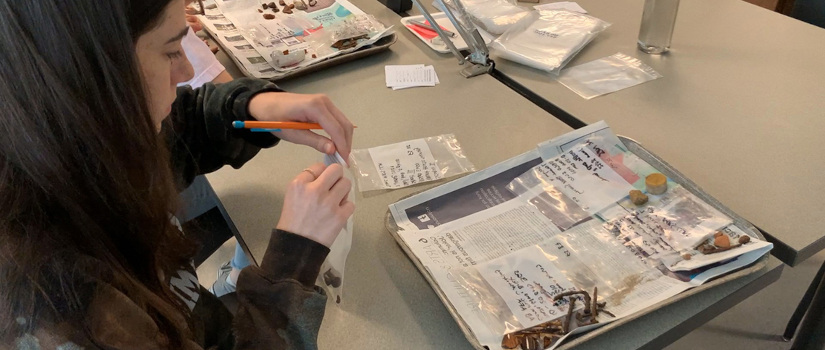What Can You Do with a Degree in Anthropology?
A degree in anthropology opens the door to a wide range of careers, thanks to transferable skills that can lead to success in fields relating to business, technology, advocacy and more. You'll be able to apply what you learn to questions about social and environmental justice, identity, health and social inequities. Students leave our program with the cultural understanding and reasoning capabilities to succeed in today’s workforce.
Anthropology Major
Our major takes a comprehensive approach to the study of humans, including the social and physical development of our species. This track leads to a Bachelor of Arts degree, with an option to major with distinction.
Undergraduate students take courses in four areas of anthropology:
- Cultural Anthropology: the comparative analysis of different cultures
- Archaeology: the scientific study of past people and societies through their artifacts
- Linguistic Anthropology: the study of all forms of human systems of communication and how these systems mediate human experience and engagement with the world
- Biological Anthropology: the study of the physical nature and development of human beings, behavior and anatomy of nonhuman primates, and human variations
The major with distinction is available to students who have maintained a high GPA throughout their coursework and who wish to pursue a more intensive, research-driven track.
Minors
The general anthropology minor offers an appreciation of cultural and biological diversity, giving you the skills to thrive in today’s global economy. Anthropology courses can complement any primary course of study but are especially valuable to students in majors such as history, African American studies, women and gender studies, global studies and political science. Minor students may participate in research and fieldwork locally and abroad. See more.
The medical anthropology minor offers an understanding of health from the perspective of human cultural and biological diversity. You’ll use cross-cultural perspectives and data to study health trajectories, preparing you for a career in global health. Courses in the minor are part of the Carolina Core and may fulfill cultural competency requirements that pre-med students will need for the MCATs. See more.
The medical humanities and culture minor offers a range of courses in the humanities and social sciences that explore the ethical, social, representational and historical dimensions of disease, health, disability and health care. It is ideal for students interested in pursuing a career in medicine or a health-related field. See more.
Cognate
Adding a cognate in anthropology gives you a foundation of cultural and biological insight that will supplement any major. Any Arts and Sciences student can add a cognate in anthropology to supplement their major, but students hoping to pursue a career in a health-related field especially can benefit from the cognate. Requirements are listed in the academic bulletin.
